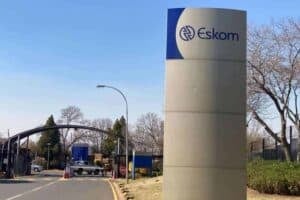It’s time for government to stop being the granny state and allow for serious build by independent power producers (IPPs).

SA’s single biggest problem at the moment is the regular, stable supply of affordable electricity, but government’s obsession with being the sole supplier thereof is sinking us.
The utility was positively ebullient with its announcement yesterday that unplanned outages had come down to 11,673MW, thanks to units back online.
With Koeberg back online, it gave Eskom enough of a buffer to remove a little over 800MW at Hendrina and Lethabo power stations from the grid for scheduled maintenance.
This bumped the overall power loss back up to 12,473MW, which is right back into load shedding territory.
Hendrina was brought online around 1976, and Lethabo in December 1990.
It’s dinosaur technology, as are the rest of the coal-fired power stations and the back-up diesel generators. It’s time for government to stop being the granny state and allow for serious build by independent power producers (IPPs).
Unions have the government over a barrel, citing job losses as their chief concern. So, too, do coal mines, coal truckers and the like.
But holding the entire country and economy at gunpoint isn’t helping. The thing is, new plants require construction.
There’s a wind tower factory hanging on by its nails in Port Elizabeth, waiting for the next round of IPP approvals which were promised by government, but have yet to be signed off.
According to allafrica.com, the department of energy released figures which showed the Renewable Energy Independent Power Producer Procurement Programme “by 2016 had not only delivered multiple millions in investments, but also created more than 30 000 jobs and benefitted local community development to the tune of R256 million”.
So what’s the hassle?
Cost, the anti-renewables scream. Well, yes and no. The first round of contracts signed were certainly more expensive as the system felt its way around in the dark.
Now? Not so much. Renewable energy now costs around 60c per kilowatt hour.
We’re facing growth of 0.9% (up from 0.4% last year), Telkom is facing large scale retrenchments, Massmart is in a similar basket.
The despair of being retrenched aside, the economy once again suffers as buying power decreases and the focus shifts to looking for nonexistent jobs in a highly competitive market.
The entire economy is built on one thing: electricity.
Eskom is in court to claw back its R69 billion the National Energy Regulator grabbed. It also wants to push tariffs up, despite the billions in handouts it’s already had.
We’re already paying for electricity Eskom is begging us not to use – and because we’re not, it needs more money.
It’s a system designed to fail, not even the value-added tax increase last year has managed to bring Treasury out of the donga it finds itself in.
Government’s plan to restructure Eskom into three different entities also means three boards, three chief executive officers, three management teams. In other words, three times more costly.
So where’s the benefit?
If coal is so important to the government as a cash cow, sell it to overseas buyers.
It’s been said before: there is an abundance of free sunshine going to waste and government should be derestricting its use, instead of diving behind the wall of incomprehensible and invasive red tape it loves so much.
For more news your way, download The Citizen’s app for iOS and Android.






